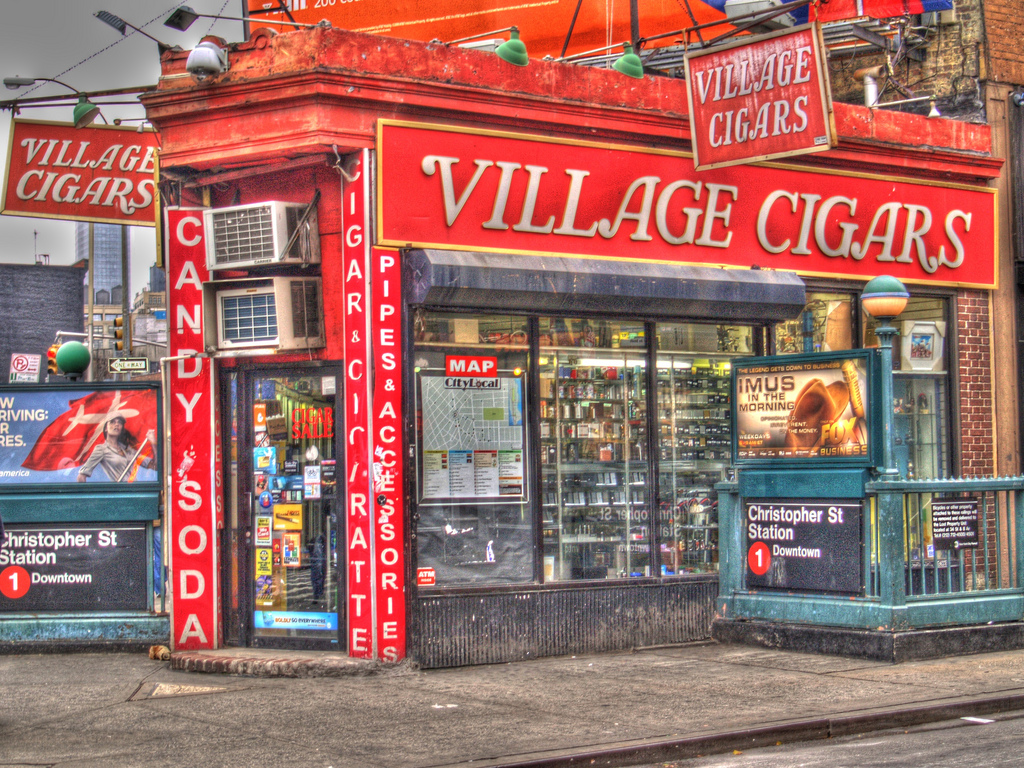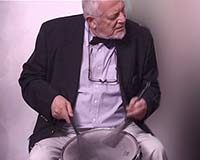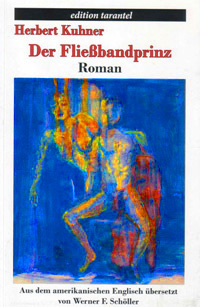Brecht and Lenya
In the famous photo of Brecht, you can almost smell the tattered stogie. He’s is a dead ringer for Groucho, but without the pasted-on brows and mustache – and the sly humor. Besides having an aversion to the odor of the stogie, I’m put off by the shabby atmosphere of his plays and the high-pitched moralism. I never liked sitting in classrooms, and I’m not wild about drama in which the author uses a blackboard and a pointer.
Unfortunately like many others, the writing of it took precedence over the living of it. And later, during the Berlin uprising, he remained in the confines of his theater until the storm had passed. He preferred to say it and to have a venue for saying it, rather than carrying through. Prior to that, when things got hot in the States due to McCarthy’s witch-hunt. When he was called to testify before the House Un-American Activities Committee, he simply belied what he allegedly was all about. And the next day he flew back to Europe.
To quote my late friend and mentor Emile Capouya: “Claudel was a Heavenly imperialist.” I say that Brecht was a Marxist imperialist, which I don’t think is a contradiction in terms. He wanted the world to be Marxist, come what may, as long as his plays were on the bill. Brecht did for Marxism what Claudel did for Catholicism. Claudel’s pragmatism also overrode his ideology. Claudel may have wanted the world to be Catholic, but besides being an idealist, he was a practical man. He is reputed to have fashioned a paean he originally wrote for Marshal Pétain to fit General de Gaulle. And he was right. Why waste well-wrought sentences after Pétain had justifiably fallen from grace? It’s a writer’s business to publish, and words should take precedence over deeds.
In the Fifties, I saw the legendary production of The Three Penny Opera with Lotte Lenya in Theatre de Lys in Greenwich Village. That was when the Village was still the Village. There were theaters with off-Broadway productions and lots of non-chain bookshops, instead of just cafés, restaurants, bakeries and artsy-craftsy shops.
The Opera was marvelous indeed, thanks to Brecht, as well as Kurt Weill, John Gay and Brecht’s lady friends, who filled in what the master told them to fill in à la Rubens.
Weill broke with Brecht before they left for the States, because he didn’t want to be second man in a tandem. He did indeed become his own man and that man became a very American composer. He left the hard-hammer German mode behind for a lilting Broadway one.
Among his achievements is the classical Broadway musical, Knickerbocker Holiday, which included the great standard, September Song. And speaking of Marx, when Weill left Brecht, it was like Groucho leaving Harpo and Chico. (Padron me for bringing Groucho into it again.)
Another marvelous Village production was Brecht on Brecht, directed by George Tabori with Viveca Lindfers.
I begrudgingly have to admit that it was good, but I that I wasn’t enraptured
I’d like to salute the ladies who played a role in his life, and especially the lady who is best known for playing roles in his plays and operas. She relates an anecdote that would make any author envious, including Brecht and his stable of lady ghostwriters.
Lenya and Weill left Berlin, thanks to Adolf Hitler, and arrived in the States in 1933. And what did Lenya do after arriving? She went shopping. In her own words: “I went to Saks Fifth Avenue and bought a sweater, and in my horrible English, asked the clerk, “Would you rape it for me?” “Sorry miss,” he said, “but it isn’t my type.”
Village Cigars
It’s still there – Village Cigars on 7th Avenue and Christopher Street in the West Village with its white lettering on a red background. It’s been there forever, and it’s one of the few popular landmarks left.
Greenwich Village is still an address. There good restaurants and bakeries, but the theaters and bookshops are gone. Not only that, even the cafés are gone. Café Figaro is no more and a lot of the artsy-craftsy shops are gone.
Sado-maso shops are doing good business on 4th St.
And my God, the Waverly Theater on Sixth Avenue is gone. How could that ever be? There’s still a movie house there, but it’s not the Waverly.
I remember the Village of the Fifties and Sixties. I saw a wonderful production of the Three Penny Opera in the Cherry Lane Theatre, and I still have the bilingual French and German poetry books I bought in the 8th Avenue Bookshop.

Yes, the Village is still an address, but that’s all it is – an address. If the Village symbolizes anything now, it symbolizes the decline of culture.
I have always been irritated by smoke, and I have swallowed more than my share of the grey substance that was blown my way. Why is it then that I love the Village Cigars shop? Because it’s all that is left of the Village I knew. There it stands with the Christopher Street Subway stairways going down on both sides of the triangular front. I wouldn‘t say it’s attractive. I wouldn’t even call it pleasing, but it was and still is visually a part of the Village – the Village I knew.
When I stand in front of it, it’s as if I were standing in the old Village – the old Village that is nothing but a memory now.
– Herbert Kuhner










 Users Today : 394
Users Today : 394 Users Yesterday : 122
Users Yesterday : 122 This Month : 2831
This Month : 2831 This Year : 19764
This Year : 19764 Total Users : 177859
Total Users : 177859 Views Today : 529
Views Today : 529 Total views : 1868564
Total views : 1868564 Who's Online : 3
Who's Online : 3




